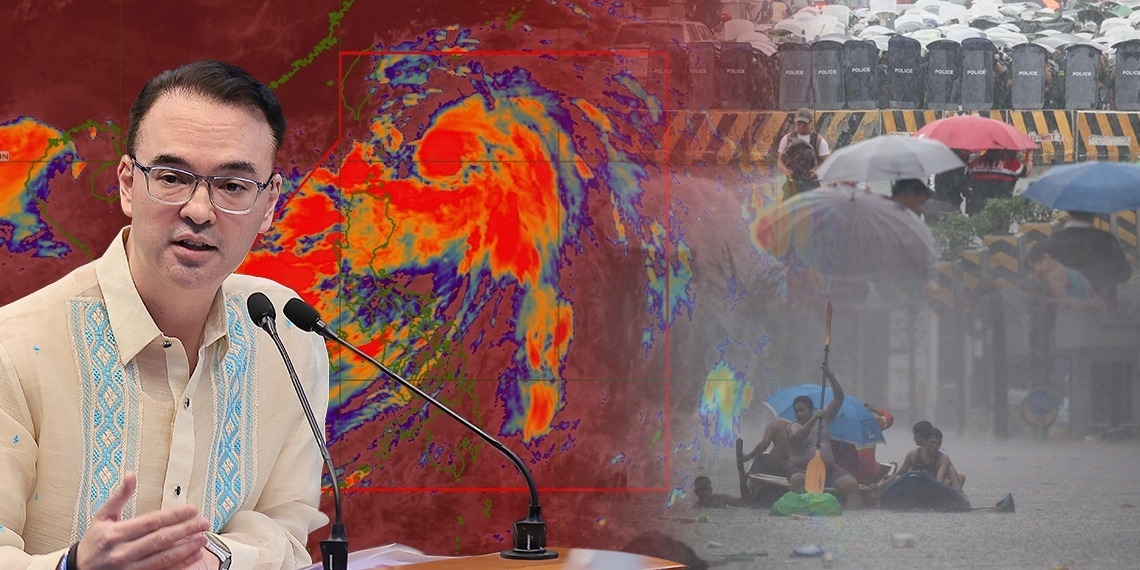Senator Alan Peter Cayetano is urging the government to establish an Emergency Response Department (ERD) as a decisive action to bolster the nation’s resilience against the growing threat of extreme weather events due to climate change.
The senator’s call comes after typhoon Carina brought incessant rains on July 24 that wreaked havoc across Luzon, causing widespread flooding in Metro Manila and nearby provinces.
“We have to seriously address this ‘new normal’ of extreme weather in the country. Consider ‘Carina’ which is like a repeat of ‘Ondoy’ from 15 years ago -– the damage wrought has been so severe that the National Capital Region and neighboring provinces have had to declare a state of calamity,” Cayetano said on July 25, 2024.
“We have to seriously consider establishing an Emergency Response Department or we’ll leave our kababayan defenseless in the face of climate change,” he added.
Cayetano also cited other calamities such as the sudden phreatic eruptions occurring from Mayon Volcano since July 18. The volcano remains at Alert level 1.
He has previously underscored the need for government action to enhance disaster resilience, citing the Philippines’ high vulnerability to natural calamities and climate change impacts.
In filing Senate Bill No. 66 or the ERD Act, Cayetano cited the 2021 World Risk Report which showed the Philippines ranking eighth out of 181 countries in terms of disaster risk.
“Manila has also been ranked by the Climate Change Vulnerability Index (CCVI) as the most vulnerable of the world’s 20 ‘high growth cities’ to the effects of climate change,” he wrote in the bill’s explanatory note.
He noted that while there are many good people working at the National Disaster Risk Reduction and Management Council (NDRRMC), “it is high time that the government provides for a focused, single-minded, specialized department to upgrade the government’s capacity to respond to disasters in an effective and speedy manner.”
Once enacted, the ERD Act proposes the creation of a Humanitarian Emergency Assistance and Disaster Funding amounting to P25 billion annually, aimed at swiftly addressing unforeseen expenditures arising from natural calamities.
The ERD is also envisioned to encompass specialized bureaus such as Hazard Education and Risk Mitigation, Disaster Preparedness, Humanitarian Emergency Relief Operations, and Administration and Finance.
“We may not be able to stop disasters but we can empower ourselves with knowledge, training, education, equipment, tools, and the right infrastructure to cope with disasters so many lives would not be lost and there would be less devastation,” Cayetano said.
“A window of opportunity exists to sow seeds of preparedness in order to reap resilience to disasters,” he added.






